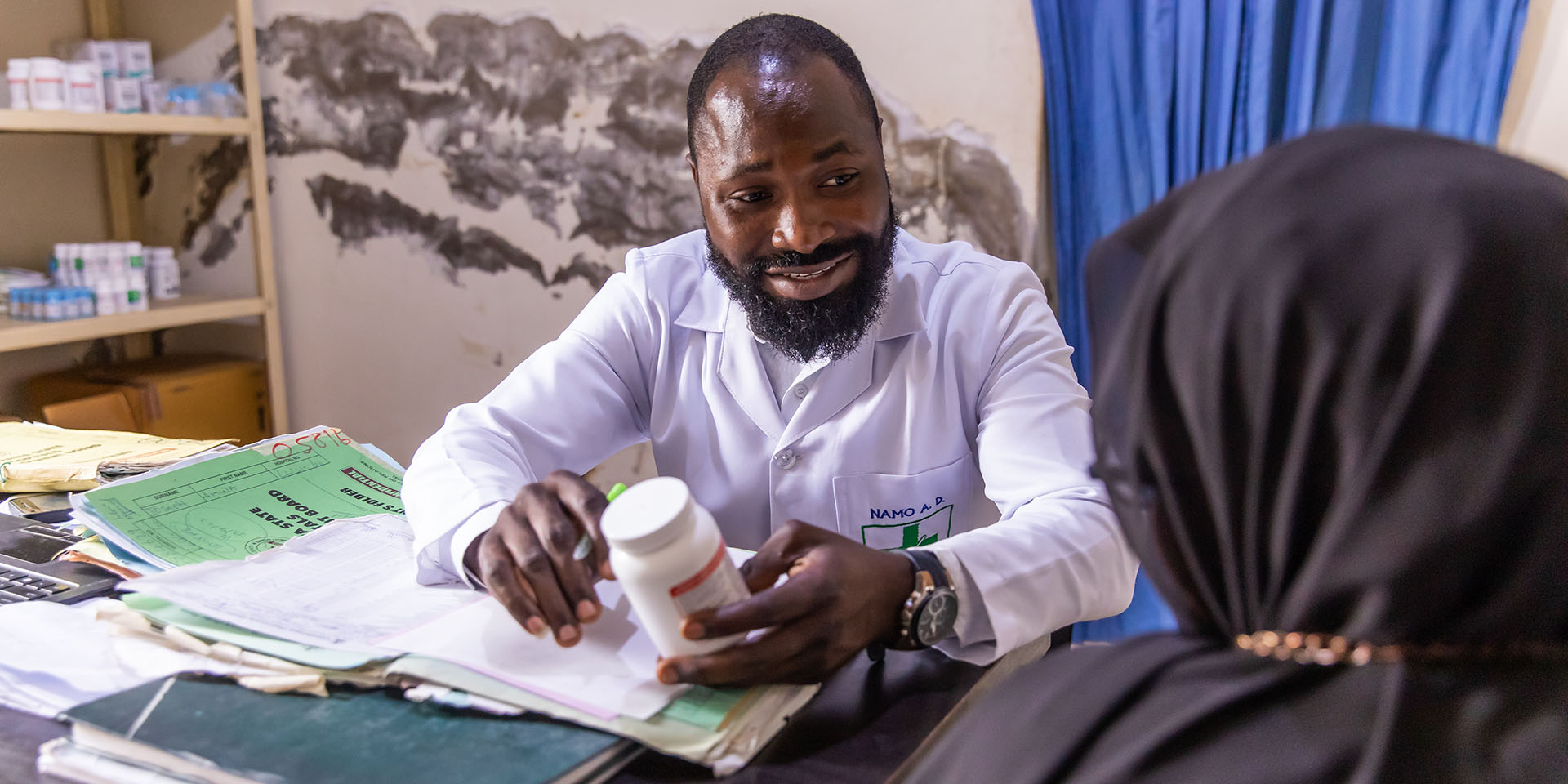
Over the years, Nigeria has made significant strides to ensure patients can access adequate antiretroviral therapy (ART) during clinic visits. Despite these efforts, the ART clinics in Nigeria have continued to see an increase in the number of people coming through their doors daily. Noticeably, this has led to overcrowding of health facilities, human resources for health care constraints and fatigue, and lower quality of care, leading to the risk of decreasing patient satisfaction, interruption in treatment and treatment failure.
"The extended patient wait time, frequent medication visits and high patient burden made it hard for patients to access necessary treatments, leading to poor client retention and increased economic costs associated with treatment access," said Dr. Harrison, ART Clinician, Lagos State University Teaching Hospital (LASUTH).
In December 2021, the National AIDS and STI Control Programme (NASCP), in collaboration with the USAID Global Health Supply Chain Program-Procurement and Supply Management (GHSC-PSM) project and other stakeholders, facilitated the scale-up of the multi-month dispensing (MMD) of antiretrovirals (ARV) to reduce these challenges and improve continuity in care through increasing supplies of commodities to meet the anticipated scale up demand. This responsive, client-centered approach, which is delivered at the facility and the community level, simplifies and adapts HIV services across the continuum of care to serve individual needs better and reduce provider workload and other burdens on the health system.
Pharmacist Olaniyi Christiana, the Assistant Director and ART Pharmacy Coordinator at LASUTH, said the MMD of ARVs has "reduced the patient's burden on the healthcare personnel and allowed more focus on patients in need of attention, such as those with comorbidities and those just initiated on care."
GHSC-PSM ensured an uninterrupted supply of ARVs for the smooth implementation through collaborative planning with the government-led HIV quantification team, quantification and supply of ARVs, scaling up of MMD with the supply of tenofovir, lamivudine, and dolutegravir (TLD) 90-count bottles and performance monitoring of commodity availability and patients served.
"With the support of GHSC-PSM, the implementation of MMD has been smooth and has helped in commodity management through proper inventory management, resulting in the uninterrupted availability of commodities," says Pharmacist Olaniyi.
The approach adopted by GHSC-PSM to support NASCP in implementing the MMD of ARVs has provided numerous benefits to ROC and the health system. MMD has reduced the strain on over-burdened health facilities by providing all clinically stable patients with three- and six-month MMD. Several studies on MMD show continuity in care, viral load suppression outcomes among patients enrolled in MMD, and cost savings to the healthcare system and patients. Before MMD, clients visited the health facility or alternative dispensing locations monthly or bimonthly to obtain 30-day or 60-day supplies of ARVs, respectively. However, clients on MMD now receive three to six months' worth of ARVs at a time, eliminating trips to the clinic and reducing health providers' workload as fewer clients have repeat visits.
Seventy-three-year-old Nwangbo Godwin is among the many patients who have received ART for up to six years at Lagos State University Teaching Hospital (LASUTH). He said, "Thank God I now collect three to six months of medications, which have made me stay healthy and strong to attend to my business and with the harsh economic situation of the country. The ARVs are available any time I visit the facility to collect my medication," he added. He thanked the United States Government for making the drug accessible and available.
Moreover, ART optimization has been achieved with 99% of first-line adult patients on TLD, showcasing the commitment to providing effective and sustainable HIV treatment. These strategies benefit the patients and contribute to the efficiency and effectiveness of the healthcare system in Nigeria.
The provision of ART has undoubtedly been a lifeline for many individuals living with HIV in Nigeria, enabling them to live healthy and productive lives despite the challenges posed by the harsh economic situation. With continued support and commitment, access to ART will continue to be a critical component in the fight against HIV/AIDS in Nigeria, ensuring that individuals like Nwangbo Godwin can thrive and contribute to their communities.